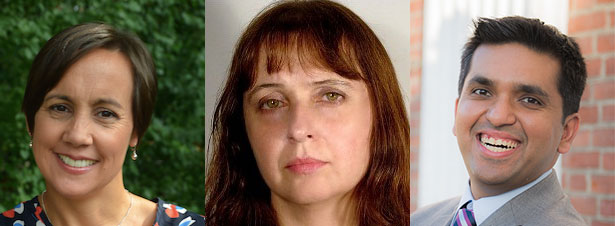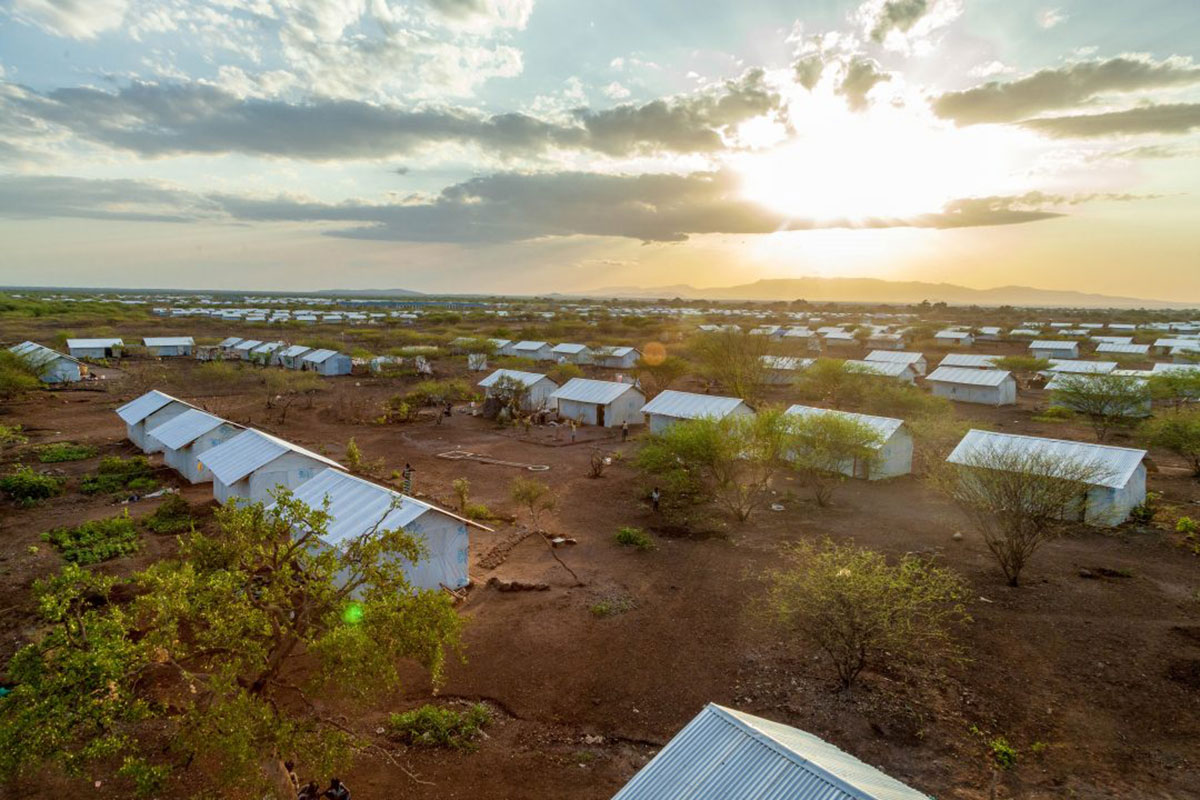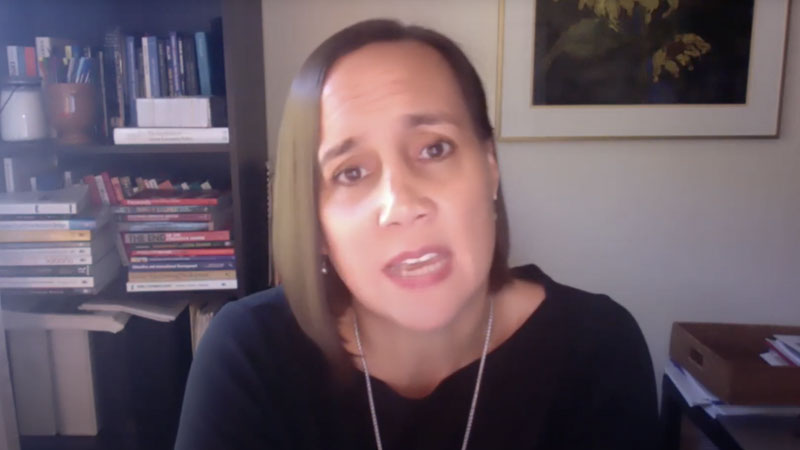The COVID pandemic is delivering “a major hit” to efforts to provide education to displaced young people worldwide and also hindering mental health efforts at a time when they are needed most. But researchers and aid organizations are learning some valuable lessons.
Those were key take-aways offered by Teachers College faculty members Mary Mendenhall and Lena Verdeli in “Education, Health, & Well-being for Displaced Populations: Strengthening Coordination and Approaches,” a recent webinar hosted by the Columbia Global Centers’ Committee on Forced Migration.
[Watch the full webinar, which was organized by Mendenhall and TC Post-doctoral Research Fellow Vidur Chopra, and moderated by Chopra.]
Mendenhall, Associate Professor of Practice in TC’s Department of International & Transcultural Studies, has spent years shaping new methods to prepare teachers who work with displaced populations. She lamented the pandemic’s impact on such efforts.
“The gains we’ve made to get kids into school are now in jeopardy, especially for girls,” she said. “The longer the health pandemic affects families’ and caregivers’ economic prospects, the more kids will have to stay out of school and have to work to support their families.”

KNOWING THE TERRAIN The webinar was organized by TC Associate Professor of Practice Mary Mendenhall (left). Mendenhall and Lena Verdeli, Associate Professor of Psychology & Education (center) were among the speakers, and Post-Doctoral Research Fellow Vidur Chopra moderated. (Photos: TC Archives)
[Read a story about Mendenhall’s efforts to improve preparation for teachers working with refugees.]
Girls face particular challenges because of “the anticipated increases in early marriage, early pregnancy and the sexual and gender-based violence that tend to accompany these types of crises,” Mendenhall said, citing a 65 percent increase in teen pregnancy in some areas of Sierra Leone during the 2014-16 Ebola virus outbreak in that country.
The gains we’ve made to get kids into school are now in jeopardy, especially for girls,. The longer the health pandemic affects families’ and caregivers’ economic prospects, the more kids will have to stay out of school and have to work to support their families.
— Mary Mendenhall
On the positive side, Mendenhall said that “the pandemic has reminded everyone, literally the world over,” of teachers’ importance. “We have to figure out how to leverage [that] newfound respect and appreciation for teachers in sustainable ways post-pandemic — not just by providing more training, but through actual stipends, payments and compensation that reflects the work they’re doing, and also through broader systemic and policy-level change.”
For the first time in a disaster, mental health has been identified explicitly as a priority. Yet at a time of increased need and demand, there is decreased availability of mental health services because of closures, illness and major disruption.
— Lena Verdeli
Verdeli, Associate Professor of Psychology & Education and Director of TC’s Global Mental Health Lab, has adapted interpersonal therapy (ITP) to help populations around the world. She said of the pandemic that “for the first time in a disaster, mental health has been identified explicitly as a priority. Yet at a time of increased need and demand, there is decreased availability of mental health services because of closures, illness and major disruption.”
[Read a story about the work of Verdeli and TC’s Global Mental Health Lab in the Rohingya refugee camp in Bangladesh.]
Still, she said, the pandemic “forces us to think of how to make mental health systems more versatile and more community based.” She cited the example of Lebanon, where she and her students have worked closely with the government to address the impact of a massive influx of people displaced from neighboring Syria.
“The country adopted a human rights approach — everyone living in Lebanon had to have access to evidence-based mental health care for a vulnerable population,” she said. “As a result of a more centralized strategy, there are more national regions with online tools, and better hotline coordination with NGOs, ministries and academic centers.”

